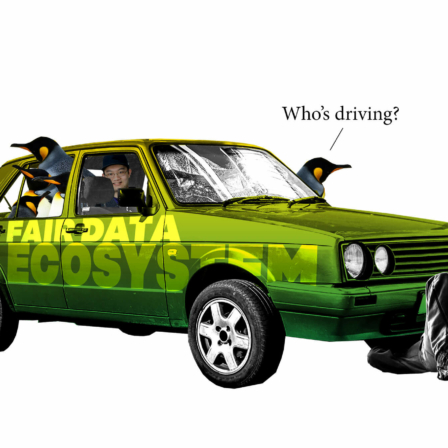The development of leadership sounds like a general term and a matter that is easy to understand, but a straw poll among people around me gives confusing results. One is of the opinion that it is about developing the skills of leading people. According to another, it is about the functionality of the management system or ensuring an efficient organisation. And the first thought that comes to mind of the third concerns self-knowledge and personal growth of those in a leadership position.
Each one of these approaches produces very different ways of developing leadership. They seldom fit into the same training programmes. However, the connecting feature between all of them is the underlying thought of a group of people and a network of interaction that is called an organisation. A manager always operates in relation to other people, steering people and the entity in one way or another.
What then should you focus on to succeed in a co-ordination task such as leadership, preferably in a way that promises a good future for the organisation and its endeavours? Should you develop the structures, renew joint working practices or the personal leadership style?
Structures for enforcing power or co-operation?
Focusing on structures and on changing them is a very traditional approach to leadership. Often, it is also one of the most visible acts of leadership work.
And, of course, you should think about how to organise co-operation and what kind of an organisational process would genuinely help reach the targets. Unfortunately, the reform of organisational structures can easily be led by the power aspect. In fact, the new organisational structure may be used for assigning positions of power, either openly or hidden behind nice words, instead being a tangible effort to promote co-operation., In that kind of renewal, the common objectives of the organisation are easily forgotten. At the same time, the approach to leadership also narrows down to the perspective of a command chain, which as a leadership approach does not help individuals or the community to thrive.
One reason for the popularity of the structure and power approach on leadership and organisations may also be the fact that it always gives those involved an opportunity to pass responsibility to someone else. In everyday life, it is a very tempting idea to state that “the structures prevent this” or “in fact, someone else should be active in this matter”.
In other words, a manager should be interested in what kinds of operating models different structures and everyday practices encourage people to adopt and what kind of interaction they prevent. And it is especially important to consider what kinds of structures support the generation of networked, multi-perspective co-operation.
Uniform or common practices?
The common observation that even in new structures people tend to follow the old practices, has brought the importance of developing joint operating models into focus of leadership. This shift of focus has been accelerated by digitisation, the increasing volumes of knowledge and, consequently, the importance of a versatile and multi-perspective analysis. In a networked world, the renewal of organisational practices is effectively co-operation that requires everyone’s contribution. The ability of different people to collaborate largely defines also the overall performance of the organisation.
When developing practices, it is essential not to force a single, ready-made procedure on everyone and in all situations, but to understand that fruitful ways of working develop and change through knowledge and thinking created in a collaborative manner. In practice, this means investing in self-management and capacity for renewal. Turning any plans for reform into real action means a series of hundreds of small insights into the thinking and everyday operations of different professionals and stakeholders. Only then can new practices really become common and uniform, not just something that looked good on the drawing board.
Therefore, leaders’ readiness to support and enable genuine renewal and creative processes lie at the heart of success. They should also be involved at the heart of the development of leadership.
Deeds of the leaders count
What about the leader’s own development and growth in his or her position? Is there time and space for that? Is it considered some kind of a luxury or special interest in the middle of major operational challenges?
This would often seem to be the case in everyday operations, even though the repercussions of the manager’s own operations and examples to the whole organisation are extensive. The manager’s own ability to negotiate, create reciprocal interactive environments and see the challenges as common learning processes directly contributes to the organisation’s success.
Good leadership is not about knowledge but skills, and if we let everyday occurrences alone influence how these skills develop, we lose a lot of both time and potential.
Positive questioning and reflection of one’s own aspirations and deeds is especially important in building agile modes of operation. Both as humans and organisations, we live in a world of discontinuity, where the future may look very different to now. The decisive factor will be how the leader and the whole organisation can update the beliefs they have in their own competences and strengthen their own engagement, and how capable they are of transforming the lessons learned from reflection on their own operations into skills that can be transferred to new contexts.
So, if I were to bet on only one horse in the competition to find which areas of leadership we should focus on, I would place my bet on investing in the skills of thinking and reframing, and the ability to think in collaboration with other people.
Even in difficult structures and in the middle of inappropriate practices, a manager can get through with a visionary approach, agility and the building of co-operation. On the other hand, if no attention is paid to generating new ways of thinking and r operating within the framework of a desired future, the structures and practices will not change either.

















Recommended
Have some more.